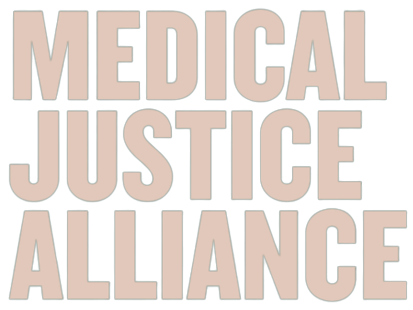
WHAT WE DO
We partner with legal advocacy groups, grassroots organizations, and incarcerated people and their loved ones to seek change through three main avenues of advocacy:
- Case Review Panel (see below)
- Medical affidavit writing for medical parole applications
- Systemic advocacy on issues including heat, sanitation, and SUD/OUD issues
- MJA-MA sign on letters and written testimony for reform bills
- MJA-MA oral testimony at legislative hearings
- Support hospital policies that promote rights and humane treatment of patients in custody
- Support community clinicians to advocate on behalf of their incarcerated patients
